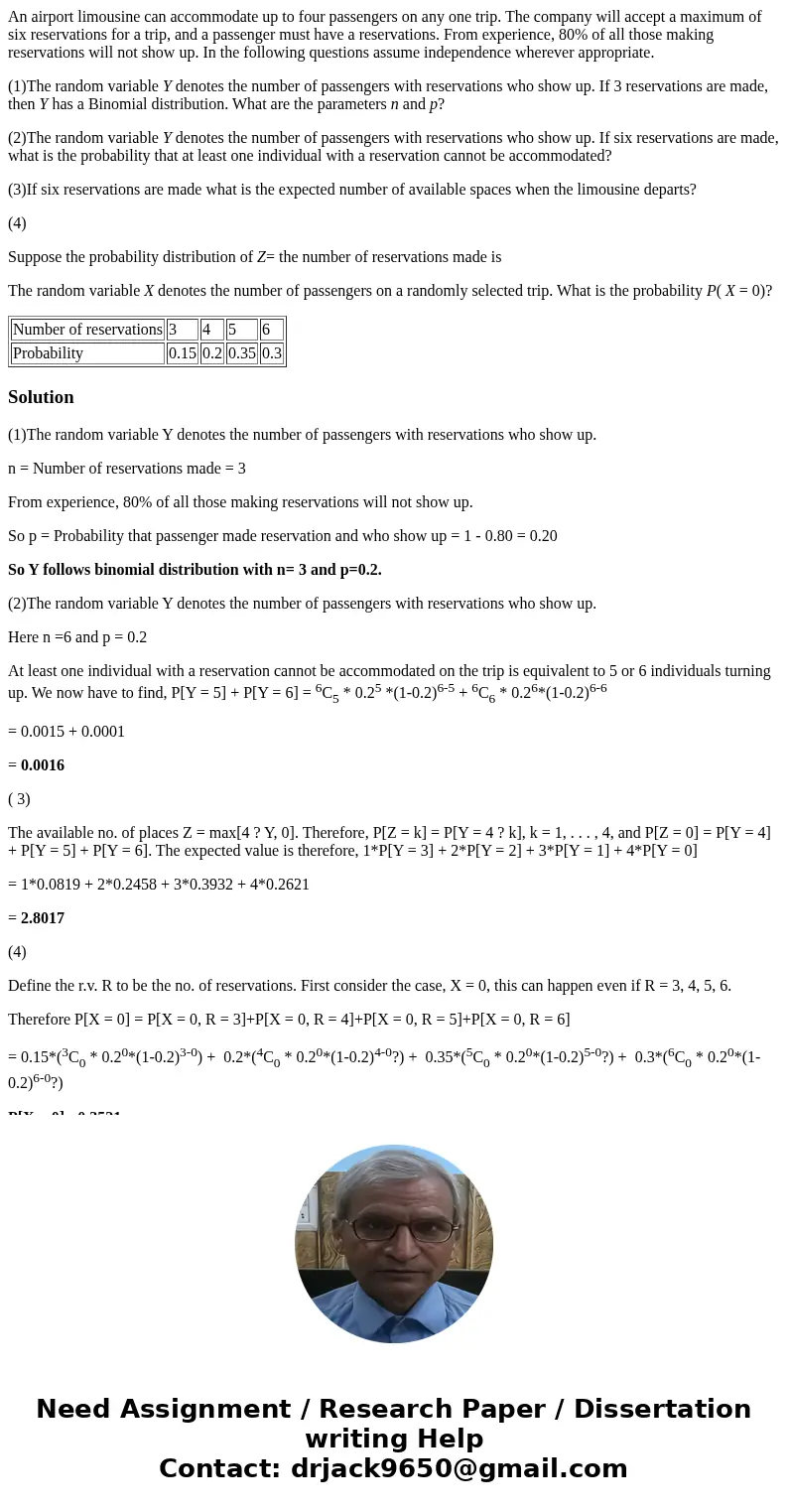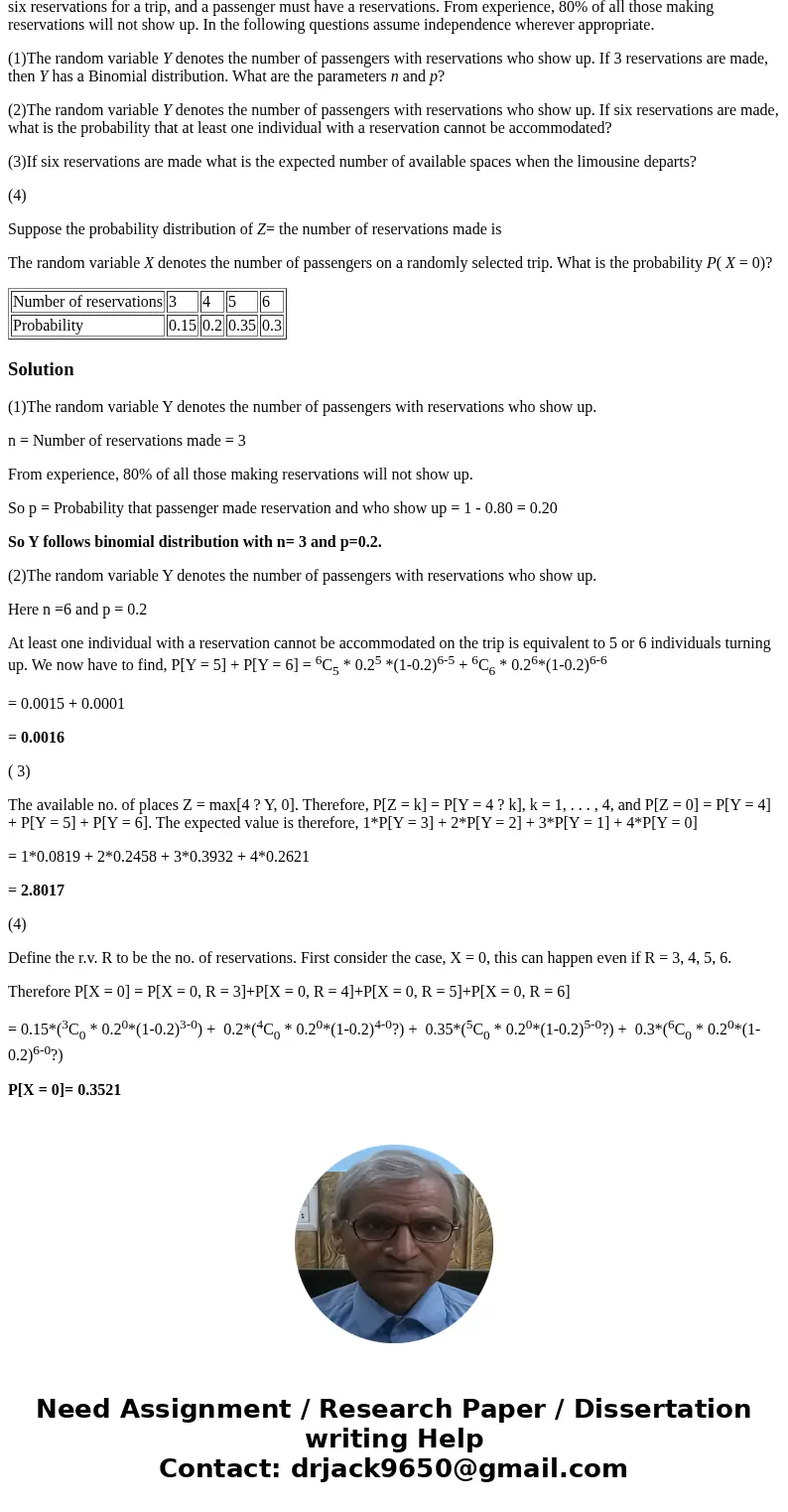An airport limousine can accommodate up to four passengers o
An airport limousine can accommodate up to four passengers on any one trip. The company will accept a maximum of six reservations for a trip, and a passenger must have a reservations. From experience, 80% of all those making reservations will not show up. In the following questions assume independence wherever appropriate.
(1)The random variable Y denotes the number of passengers with reservations who show up. If 3 reservations are made, then Y has a Binomial distribution. What are the parameters n and p?
(2)The random variable Y denotes the number of passengers with reservations who show up. If six reservations are made, what is the probability that at least one individual with a reservation cannot be accommodated?
(3)If six reservations are made what is the expected number of available spaces when the limousine departs?
(4)
Suppose the probability distribution of Z= the number of reservations made is
The random variable X denotes the number of passengers on a randomly selected trip. What is the probability P( X = 0)?
| Number of reservations | 3 | 4 | 5 | 6 |
| Probability | 0.15 | 0.2 | 0.35 | 0.3 |
Solution
(1)The random variable Y denotes the number of passengers with reservations who show up.
n = Number of reservations made = 3
From experience, 80% of all those making reservations will not show up.
So p = Probability that passenger made reservation and who show up = 1 - 0.80 = 0.20
So Y follows binomial distribution with n= 3 and p=0.2.
(2)The random variable Y denotes the number of passengers with reservations who show up.
Here n =6 and p = 0.2
At least one individual with a reservation cannot be accommodated on the trip is equivalent to 5 or 6 individuals turning up. We now have to find, P[Y = 5] + P[Y = 6] = 6C5 * 0.25 *(1-0.2)6-5 + 6C6 * 0.26*(1-0.2)6-6
= 0.0015 + 0.0001
= 0.0016
( 3)
The available no. of places Z = max[4 ? Y, 0]. Therefore, P[Z = k] = P[Y = 4 ? k], k = 1, . . . , 4, and P[Z = 0] = P[Y = 4] + P[Y = 5] + P[Y = 6]. The expected value is therefore, 1*P[Y = 3] + 2*P[Y = 2] + 3*P[Y = 1] + 4*P[Y = 0]
= 1*0.0819 + 2*0.2458 + 3*0.3932 + 4*0.2621
= 2.8017
(4)
Define the r.v. R to be the no. of reservations. First consider the case, X = 0, this can happen even if R = 3, 4, 5, 6.
Therefore P[X = 0] = P[X = 0, R = 3]+P[X = 0, R = 4]+P[X = 0, R = 5]+P[X = 0, R = 6]
= 0.15*(3C0 * 0.20*(1-0.2)3-0) + 0.2*(4C0 * 0.20*(1-0.2)4-0?) + 0.35*(5C0 * 0.20*(1-0.2)5-0?) + 0.3*(6C0 * 0.20*(1-0.2)6-0?)
P[X = 0]= 0.3521


 Homework Sourse
Homework Sourse